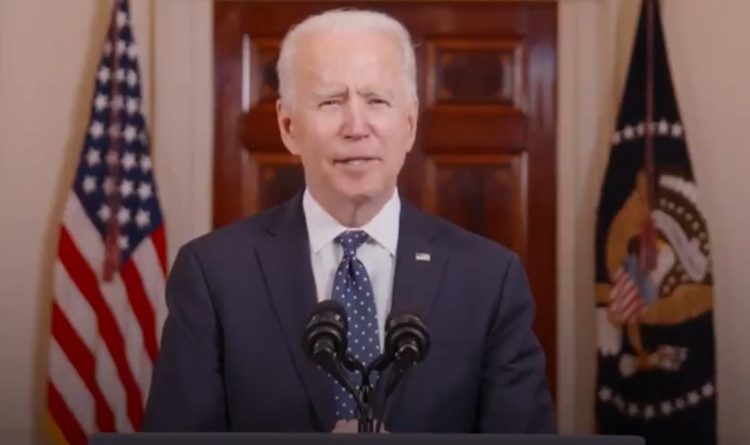Where’s the Working Class in Foreign Policy?
Will Kanatzar
Staff Writer
The wealthiest country in human history finds itself helpless in stopping a nation with an economy smaller than that of Texas. There’s no punchline to follow, and if there was, it would certainly fall flat to Ukrainian comedian-turned-President Volodymyr Zelensky. NPR reports that Russian President Vladimir Putin has encircled Ukraine’s border with 100,000 Russian soldiers. This is largely due to Russia’s fear of Western invasion and skepticism of American intentions after major broken promises from Washington. Instead of approaching this situation with realism, President Biden has resorted to a distorted view that believes Putin meddles in Eastern Europe because Russia is on a never-ending quest to destroy democracy. Biden must defuse the situation with a realist worldview that recognizes the constant aim of states to protect and grow their security. If Biden continues with this flawed approach to countering Russian aggression, he will fail at accomplishing his goal of a foreign policy that benefits the American middle class while simultaneously reaping disastrous economic outcomes.
In order to understand the ongoing crisis, one must look back in history. Covered in depth by UT Austin’s National Security Review, War on the Rocks, Moscow’s steel grip on Eastern Europe started to slip in 1990. The Berlin Wall fell in 1989 and uprisings spread throughout the Soviet sphere. During this period, Soviets worried that the West would take advantage of the momentarily destabilized region and plunge NATO deep into the heart of Eastern Europe. They were ultimately right. Despite promises from then-U.S. Secretary of State James Baker to former Soviet Premier Mikhail Gorbachev that, “there would be no extension of NATO’s jurisdiction for forces of NATO one inch to the east,” the region is now dotted with NATO bases across nearly every Eastern European nation. This broken promise remains a frequent point of contention between the world’s greatest nuclear powers.
On February 9, Putin told reporters at the Kremlin that if Ukraine joins NATO, the West will be pulled into war in Ukraine, as reported by France24. Biden offered a similarly grim summation of the crisis, shocking many with his frank honesty that, “…he will move in, he has to do something,” according to NBC News. Biden was right in taking troops off the table in the instance of a Russian invasion in Ukraine. However, he is failing to effectively defuse the situation. Resorting to the liberal outlook on international relations, the Biden administration regularly claims that Russia is meddling in Ukraine to destroy democracy in Eastern Europe. But history points to a far bigger concern. Putin, like many Russians, is heavily skeptical of Western intentions after the broken promises of the 1990s and of any military presence to Russia’s west. Nearly 27 million Russians died the last time invading forces crashed through the Soviet Union’s western defense, disguised under the veil of empty German diplomatic promises.
If President Biden wants to truly defuse this crisis, he must approach Russia with realism. True conflict resolution starts with signaling to the other that their concerns are heard and understandable. Thus, America must acknowledge that it broke its promise not to expand NATO and promise to cease expansion. American liberal internationalists will cry, “what about democracy!”. Doctor Heal thyself. Between rising American distrust of government, raging economic inequality, and one of two American political parties believing the last election was stolen, perhaps America should learn how to build democracy inward before trying to promote it outwardly. Planes tell passengers to secure their oxygen mask first before helping the person next to you, because otherwise both passengers will likely die. Recognizing Russian emotion over Western invasion as a valid concern signals that America listens when it engages in diplomacy. This is always what Russia has wanted: inclusion in decision making over the post-World War II European security project. Do they not deserve it? Look at the figures of the amount of lives lost by each allied nation. Russia dwarfs the U.S., France, and Britain collectively, as reports The WWII Museum.
When Secretary of State Anthony Blinken gave his first major speech as Secretary of State, the Carniegie Endowment for International Peace highlighted one of his key promises – when the Biden administration would make its foreign policy decisions, it would be guided by these questions: What will our foreign policy mean for American workers and their families? What do we need to do around the world to make us stronger here at home? These are clearly not the questions the Biden Administration is asking itself as it fails to defuse European tensions while inflation soars at home. Fomenting war between a major global energy supplier, Russia, and a major global grain exporter, Ukraine, as American workers are being crushed at the gas pump and the grocery store is the last thing that America’s middle-class needs.




